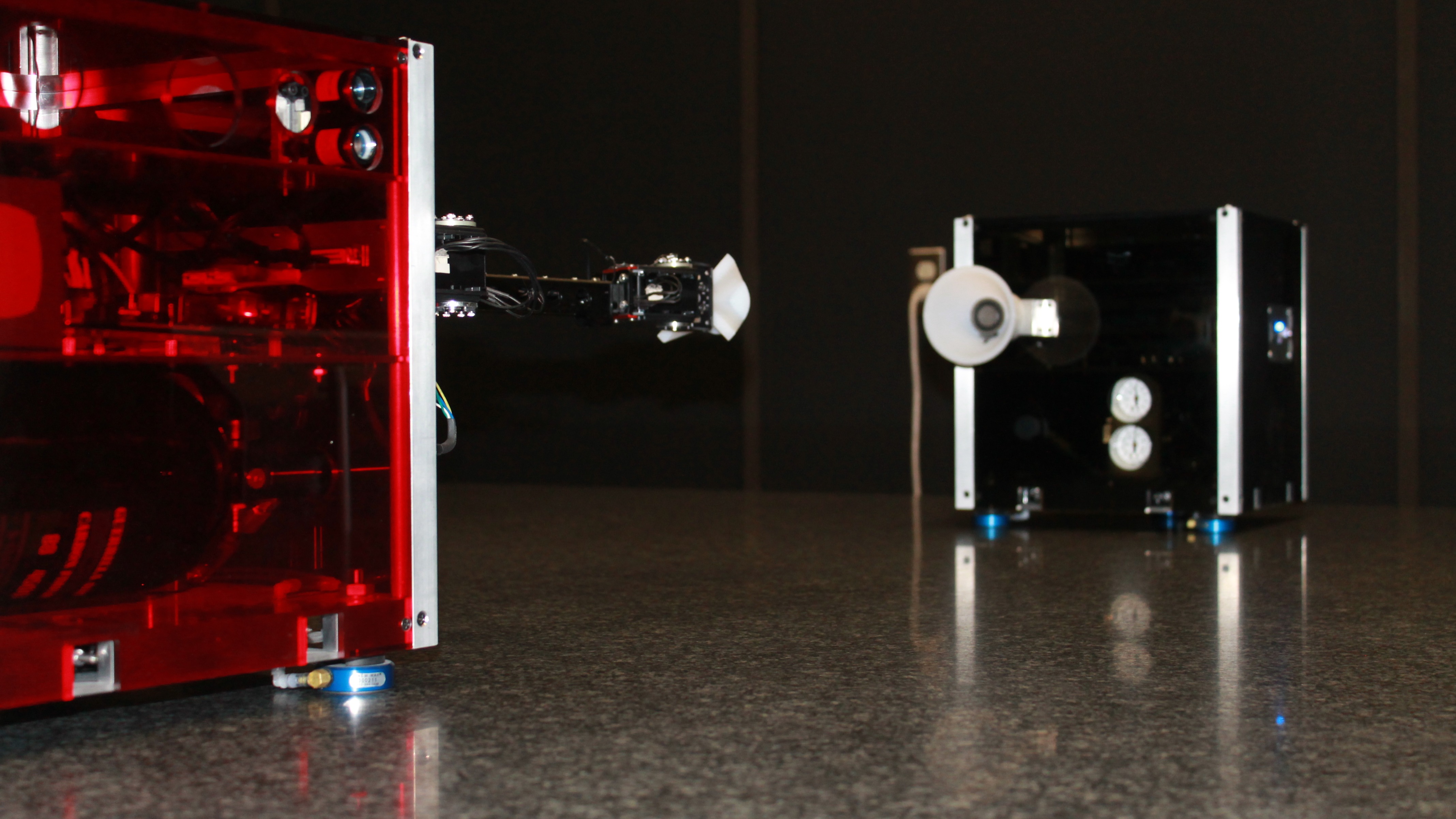As the number of satellites in earth-orbit increases, there will be a push for space missions that perform on-orbit servicing of depleted satellites and remove space debris from populated orbits. Several such initiatives have already been established, including the U.S. DARPA’s RSGS program, ESA’s Clean Space program, and NASA’s OSAM-1 mission. Performing rendezvous and docking (RVD) maneuvers with uncooperative targets is a complex task that requires an on-board autonomous guidance software responsible for planning in real-time a RVD trajectory. The resulting collision-free trajectory must satisfy dynamical motion constraints while remaining within operational boundaries. This is no trivial task since model uncertainties, sensor measurement noise, and environment disturbances found in real systems impact the states of all spacecraft and must be considered to guarantee the generation of a safe and feasible reference trajectory. Addressing uncertainties has led to the development of so-called “robust” guidance algorithms. To generate a robust guidance algorithm, traditional research efforts have focused on developing methods to systematically tighten constraints or incorporate the stochastic behaviour directly into the problem formulation. With advancements in artificial intelligence, a recent branch of research focuses on data-driven techniques to allow the controller to learn models and/or desired behaviours from data. For this PhD project, we will develop and compare the performance of robust guidance algorithms that incorporate varying levels of data-learning: (1) offline learning using generated data from simulations, (2) online learning using generated data from experiments, and (3) no data learning. Six-degree-of-freedom (6DOF) numerical validation as well as 3DOF experimental validation with Carleton’s Spacecraft Proximity Operations Testbed will be followed by a 6DOF experimental validation campaign using DLR’s On-Orbit Servicing SIMulator (OOS-SIM).

